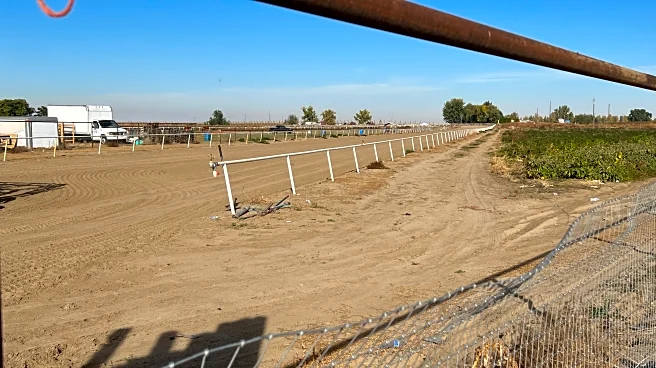What's Happening?
A bipartisan group of U.S. senators, including Tim Kaine, Rand Paul, and Adam Schiff, have introduced a resolution to prevent President Trump from conducting military operations in Venezuela without congressional
approval. This move comes after Trump ordered strikes on boats in the Caribbean, allegedly transporting narcotics from Venezuela, resulting in over two dozen deaths. The resolution emphasizes Congress's constitutional role in declaring war, aiming to restrict unilateral military actions by the president. The senators express concern over potential escalation into a broader conflict with Venezuela, highlighting the need for legislative oversight.
Why It's Important?
The resolution reflects ongoing tensions between the executive and legislative branches over war powers and military intervention. It underscores the importance of congressional oversight in foreign military engagements, aiming to prevent unauthorized conflicts. The bipartisan effort signals growing concern among lawmakers about executive overreach and the potential consequences of military actions without legislative consent. This development could influence future debates on war powers and the role of Congress in authorizing military interventions.
What's Next?
If the resolution gains traction, it could lead to a congressional vote on limiting military actions in Venezuela. The outcome may depend on bipartisan support and the willingness of lawmakers to assert their constitutional authority. Should the resolution pass, it could face a presidential veto, requiring further legislative action to override. The situation may prompt discussions on the broader implications of U.S. foreign policy and military strategy in Latin America.
Beyond the Headlines
The resolution highlights ethical and legal considerations regarding the use of military force and the balance of power between the president and Congress. It raises questions about the impact of military interventions on international relations and the potential for unintended consequences. The debate may also reflect broader concerns about the role of the U.S. in global conflicts and the importance of diplomatic solutions.










